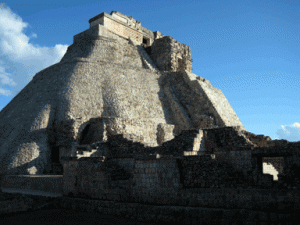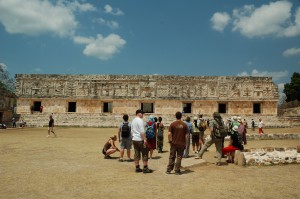Atlantis not really a ruin after all!
What intrigues me the most is that not only has Google Maps found Atlantis, but also, Atlantis appears to be a thriving community. I always thought that when Atlantis was finally found, it would be a ruin and be found by underwater archaeologists. But the Atlantis in the Weekly World News online article ATLANTIS FOUND ON GOOGLE MAPS! does not look like a ruin at all. And, it is above the water on an island–the great Island Nation. Take a look at this amazing image:

Atlantis found off the coast of Ireland, image from World Wide News
I’m looking forward to the time when Weekly World News reporters and photographers can visit the antideluvian lost continent and interview some of the inhabitants. I want to know: What have they been doing all these years!
Continue readingAtlantis is off the coast of Ireland after all!
How do you like that? After all these years with claims that the ruins of Atlantis were actually in all these diverse places, such as the Azores, Santorini, Cyprus, Bimini, under the Sargasso Sea, off the coast of Cuba, and even Antarctica and the East Indies, it turns out, the people who thought Atlantis was off the coast of Ireland (some even thought Ireland had been Atlantis!) were right!
A January 11, 2011 article posted on Weekly World News called Atlantis Found on Google Maps! pin-points the lost continent of Atlantis is off the coast of a tiny town in Ireland called Dingle, population 300.
Well, that’s a relief. At last, an end to all the conjecture, an end to all the exploration, an end to all the headlines saying, “Atlantis Found.” Now, it’s really found.
And wasn’t that a purrty picture from Google Maps of it in yesterday’s post?
Continue readingGoogle Maps has found Atlantis off the coast of Ireland!
Weekly World News reports that Google Maps has found Atlantis. In an article entitled, Atlantis found on Google Maps!, J.B. Smitts writes that:
- “The photo taken by Google Maps is most definitely the Lost City of Atlantis,” said Yale Mythologist Anthony Braxwell. “It displays all the trademark characteristics of the legendary metropolis. A shimmering castle, glistening drawbridges made of gold, crystal spires – yep, it’s all there.”
“I’m just surprised it took so long to find,” added Braxwell.
According to sources, the Google Maps satellite was performing a routine scan of the Atlantic Ocean when it came across the strange, previously uncharted Kingdom of Atlantis.
The satellite images, which have been proven accurate to within 1/100th of a millimeter, show the island of Atlantis sitting just 10 miles southwest of Dingle, Ireland, a small township with a population of 300.
“I’ve lived here for 75 years,” said Brian MacElhose, a farmer and lifelong resident of Dingle, “and never noticed that gigantic city floating out there in the ocean. How could I have missed it? Oh well, I guess that’s what Google Maps is for.”

Weekly World News says Atlantis found by Google Maps
All that I can say is that it’s about time someone found something definite that is truly the lost city of Atlantis. There have been so many hopeful and fanciful claims, I am happy to see that not only have Google Maps found Atlantis, but they have provided actual photographs to corroborate their wonderful discovery.
I especially love how the photograph has a misty quality almost as if it is a piece of art. But what else do you expect of such a mystical, magical kingdom as Atlantis. Check out the link for the whole “photo,” which shows Atlantis off the coast of Dingle, Ireland.
Continue readingAtlantis and the Flood in the History of Geology
Here’s a neat online article on the History of Geology website. The following quote is extracted from David Bressan‘s From Contractional theory to modern geology. It is a theory explaining the location of the lost continent of Atlantis.
-
Already after the first maps of the American continent were published (1507 and after) and become public, the similarity between the coast of Africa and America intrigued geographers and naturalists, and this fascination continued in the following centuries. In 1620 the English philosopher Francis Bacon noted the jigsaw form in his “Novum Organum” and claimed that “it’s more then a curiosity”, and 38 years later the munch Francois Placet published a small booklet entitled “The break up of large and small world’s, as being demonstrated that America was connected before the flood with the other parts of the world.” He argued that the two continents were once connected by the lost continent of “Atlantis”, and the sin flood beaked them apart.
The idea of the biblical flood explaining the shape of earth remained popular for the next 250 years.
This is a great site with great information and lovely illustrations. Check it out.
Continue readingWas Atlantis originally called Atlas?
According to this comment in reply to the article Lost city of Atlantis ‘could be buried in southern Spain on the History.com web site:
-
The island of Atlas (reads Atlas in Greek; Atlantis is a British created word) was said to have founded the city of Athina, aka Athens. But it was said that the island became corrupt, so Athens fought against the island to gain its “independence” from it.
It makes sense that, if Athens was originally a colony of Atlantis/Atlas as was Egypt, the Athenians could have fought to gain independence from its homeland if Atlantis/Atlas became corrupt. There are historical events of this kind recorded in many parts of the world. There are also legends about the corruption in Atlantis so, yes, it makes sense.
Continue readingCould Atlantis have been Mu?
In the Top 10 Theories about the Lost City of Atlantis article on the Top Tenz website referred to in my last two blogs, there is also references to another mysterious lost continent named Mu. An excerpt from the above article says:
-
Mu is the name of a hypothetical continent that allegedly existed in either the Atlantic or Pacific Ocean, depending on who you listen to. In either case, it was thought to have disappeared at the dawn of human history, its survivors emigrating to other continents to serve as the foundation for a number of later civilizations throughout the world.
Was Atlantis actually a more temperate Antarctica?
The online article noted in yesterday’s post, Top 10 Theories About the Lost City of Atlantis, also refers to one of the most intriguing ideas to explain where Atlantis has gone. This is the suggestions that the earth’s crust shifted so that Atlantis drifted to the south pole where it froze over with ice to become the present-day continent of Antarctica. Check it out.
Continue readingWas Atlantis actually in Southeast Asia?
In a May 17, 2010 article posted on this blog called, “Atlantis found in Indonesia?” I discussed an incident during one of my lectures in which a member of the audience insisted that Atlantis had actually been in Indonesia.
Well, today I found a delightful and informative online article discussing the Top 10 Theories about the lost city of Atlantis.” And, wouldn’t you know it! Number Two on the list refers to Atlantis in Southeast Asia.
Continue readingThe Myth of the Sorcerer Dwarf
I’m excited about speaking at the Edgar Cayce Forum tonight at 7:30 p.m. at Edgar Cayce’s A.R.E in Virginia Beach, Virginia. My topic is: The Yucatan Connection to Atlantis and Lemuria Using Cayce Clues and Mythology.
The talk tonight will include the description of mythological stories of the ancient Maya that illustrate influences from Atlantis and Lemuria.
Of course, there are many myths associated with the Maya. However, my favorite has to do with this magnificent structure, The Pyramid of the Sorcerer in Uxmal, Yucatan.
This magnificent photograph was taken by my husband, John Chapman. The late afternoon light shows the unusual contours of this pyramid.
I look forward to meeting you tonight. Come to the Edgar Cayce Forum and discover the myths of the ancient Maya and their connection with the Edgar Cayce readings.
Copyright (c) 2010 Carol Chapman
Continue readingA Maya Myth Carved into a Mayan Ruin
This east-facing wall on one of the four buildings surrounding the “Nunnery Quadrangle” – it was given this name because Spanish explorers thought the rows of small chambers looked like a nunnery – has a bas relief carving with a character from a Maya myth. The Nunnery Quadrangle is part of the extensive Mayan ruins at Uxmal, Yucatan.
I will be discussing this myth at the Edgar Cayce Forum in my talk The Yucatan Connection to Atlantis and Lemuria Using Cayce Clues and Mythology, which will be held at Edgar Cayce’s A.R.E. in Virginia Beach, Virginia at 7:30 p.m. on this upcoming Wednesday, September 29th.
Continue reading
